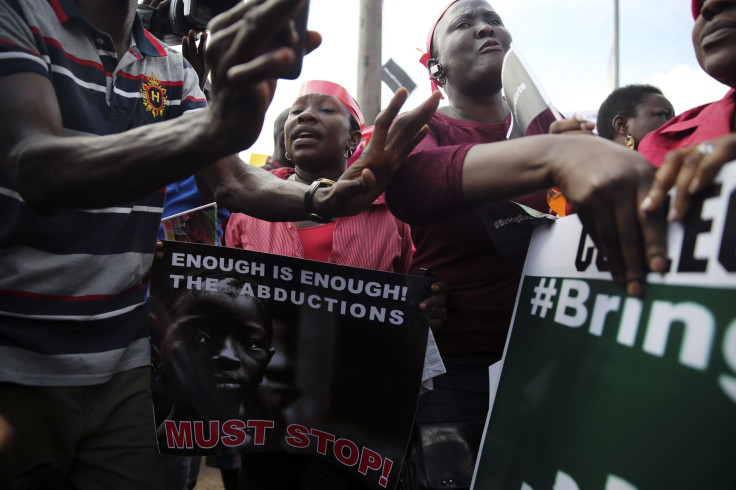Amnesty International: Nigerian Officials, Military Had Four Hours Warning Of Boko Haram Kidnapping

An Amnesty International report claims that Nigerian security forces had warning of an imminent attack four hours before Boko Haram abducted 300 schoolgirls from their school in Chibok in rural Nigeria, but failed to send reinforcements or otherwise act to prevent the abduction.
Amnesty International cites “multiple interviews with credible sources,” including two senior military officials, that say the military, state officials and the Borno state governor were all alerted of a potential attack by local officials who passed on reports of armed militants in local villages. The military knew an attack was planned prior to local warnings as well.
Between 7:00 p.m. on April 14 and 2:00 a.m. on April 15, local militia patrols repeatedly warned Nigerian military commands located 22 and 80 miles away from Chibok that a raid would occur. The raid occurred at 11:45 p.m. on April 14.
The military failed to respond accordingly because of a lack of resources and fears of being outgunned by better-equipped Boko Haram insurgents. Seventeen army personnel and the local police forces were left to respond to the attack, but were forced to retreat by 200 armed Boko Haram fighters.
“There’s a lot of frustration, exhaustion and fatigue among officers and [troops] based in the hot spots,” said one Nigerian officer, who confirmed that the military had prior warning. “Many soldiers are afraid to go the battle fronts.”
One local official says he was assured that reinforcements were on the way, but Amnesty reports that they didn’t arrive even after the abduction took place, and Boko Haram left with the girls in custody.
“It amounts to a gross dereliction of Nigeria’s duty to protect civilians, who remain sitting ducks for such attacks,” says Netsanet Belay, Amnestry International’s Africa Director of Research and Advocacy. “The Nigerian leadership must now use all lawful means at their disposal to secure the girls’ safe release and ensure nothing like this can happen again.”
Approximately 50 of the girls were able to escape during the raid but Islamist militants abducted 276 of their classmates. Boko Haram’s leader said in a video that he would sell the young girls as bride slaves.
USA TODAY spoke with Audu Ogbeh, leader of the opposition party All Progressives Congress (APC), who says the Nigerian government’s reaction is just more of the status quo.
"This is what everybody in Borno says, that it has been going on like this for the last year and a half," Ogbeh said. "That intelligence is provided but the military doesn't show up or just walks away."
The Nigerian government is also responsible for providing security for the World Economic Forum on Africa currently being held in the capital, Abuja. Bomb blasts in the area surrounding the capital have led to a number of would-be attendees to pull out of the forum. Nigerian activists separately called for the WEF to be postponed until the abducted schoolgirls are found, saying the thousands of troops in Abuja should be sent to help find them.
Amnesty International has called for Boko Haram to release the girls and cease all attacks on civilians. Around 2,000 people have been killed in Boko Haram-related violence this year alone. Four days ago, 200 people were killed and eight girls abducted in separate incidents in northeastern Nigeria.
© Copyright IBTimes 2024. All rights reserved.






















